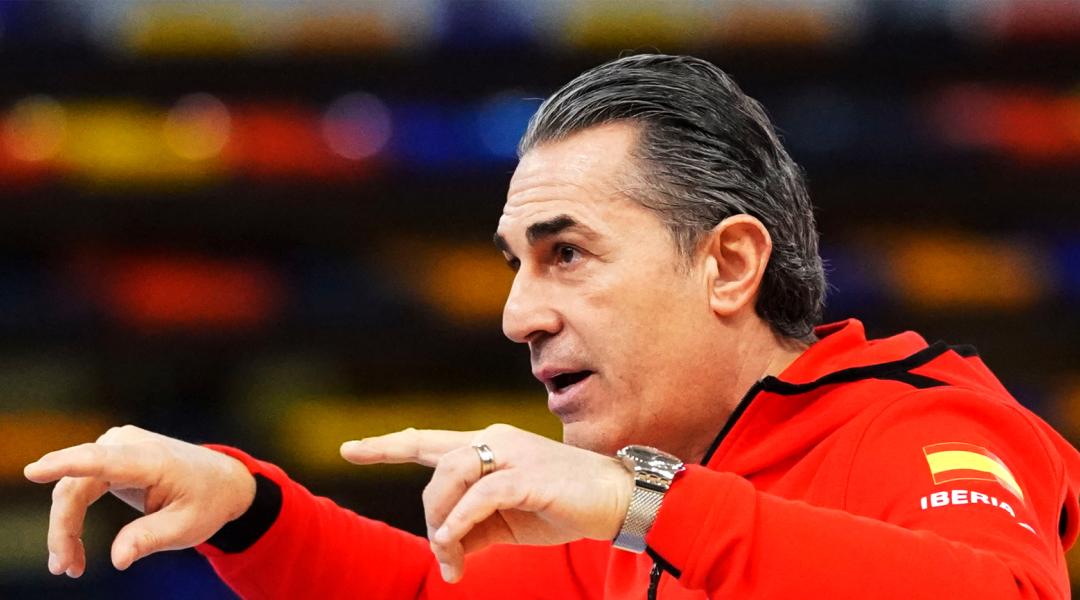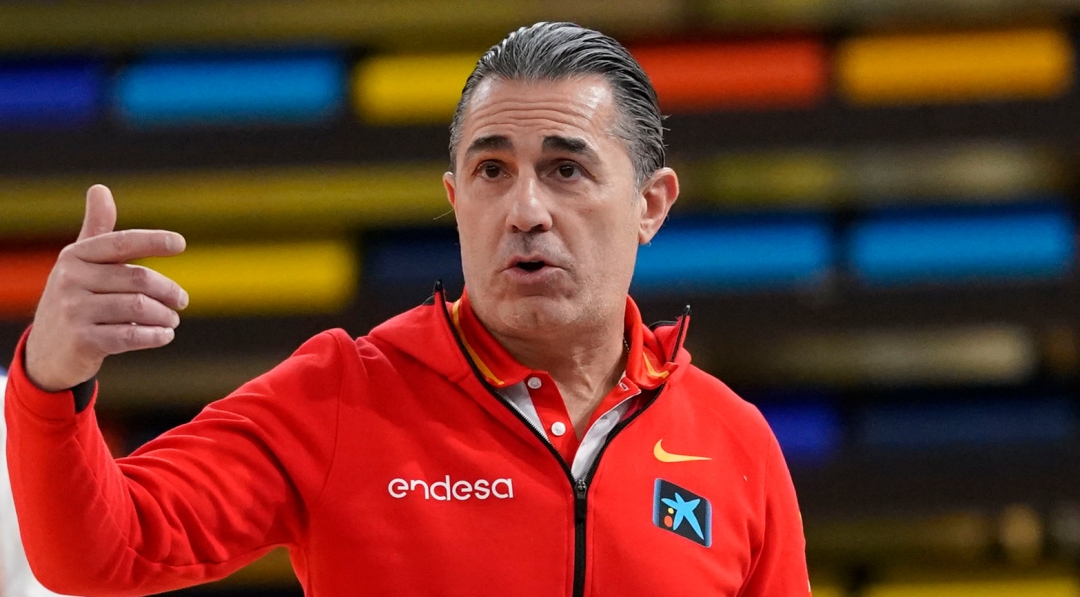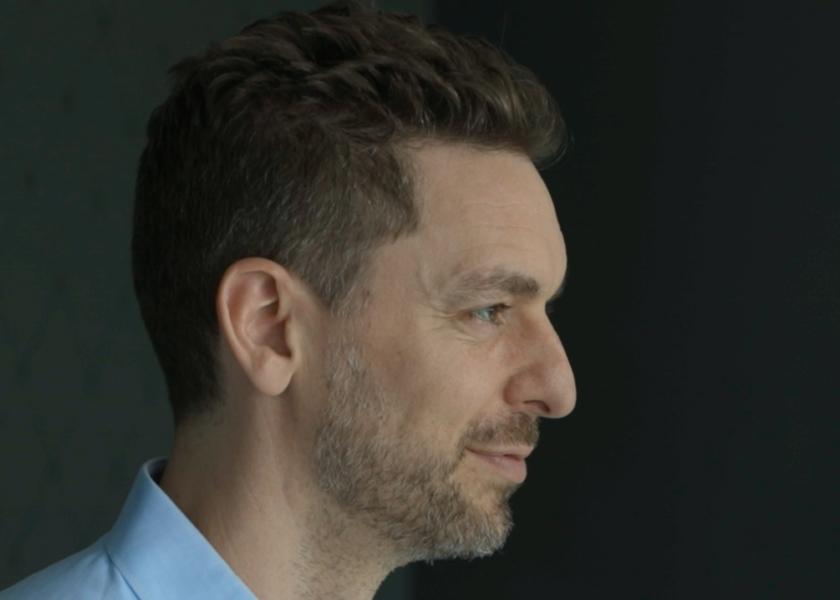Sergio Scariolo
Spanish Success With An Italian Accent

With five medals with the national team and several stints at some of the most prestigious clubs in the ACB League, the Italian manager of the Spain Men’s National Basketball Team is the most successful coach in the history of our country. After achieving his first NBA Championship ring, he is now facing one of the few challenges left: the World Cup in China.
The Gasol brothers, Navarro, his current boss and president of the Federation, Jorge Garbajosa, Felipe Reyes—these are just a few of the legendary players who at some point in the past 30 years have been coached by Sergio Scariolo (Brescia, 1961), an Italian who, without even being born in the Mediterranean, has been named adoptive son of Malaga. As a matter of fact, Marbella is where he sees himself spending his retirement, surrounded by his family and friends—although he says that’s still a way off.
Three European gold medals, silver at the London Olympics, and bronze in Rio 2016 are not enough for the most successful Italian in Spain. After recently conquering the NBA as Nick Nurse’s assistant at the Toronto Raptors, he states that he still has a lot to learn and enjoy with a selection that may not represent his country of birth, but he does carry in his heart.
What expectations do you have for the World Cup, knowing that you won’t have two of the most greatest national basketball players in recent years, Navarro and Pau Gasol, in the team?
The World Cup is always a fantastic competition, with a huge impact, and with very strong teams. Also, many countries have players in the NBA nowadays. As always, we’ll try to be one of the best selections. Obviously we’re aware that it will be increasingly difficult to maintain this fight, but this is our pride, this is who we are. We’re a group of people who have won everything anywhere we’ve gone, and we want to give it another go, sometimes facing teams that are much more powerful than ours, such as the United States, or sides that seem stronger, like teams with a lot of NBA players in their prime. That’s the challenge we face, and we do so passionately and confidently.
Who will pick up the baton from these players?
Replacing big stars like Pau Gasol, Reyes, Calderón or Navarro is totally impossible. They are and have been some of the best players in the history of basketball worldwide. What we have to do is keep following their example, because they didn’t become great stars just because of their talent, but also because of their work ethic, their enthusiasm and their leadership. That said, there are a lot of high-quality players in Spanish basketball and, above all, players that are able to continue forming a team. Rather than looking for the heirs of this generation, we must try to develop the talent we have, so that the most influential players can grab their opportunities and gain experience, both internationally and in national competitions. And, of course, we have to continue maintaining the team identity—that ability of the group to grow bigger than the sum of the individuals, which has always been our thing and should continue to be so.
“Rather than looking for the heirs of this generation we must try to develop the talent we have”
You’re Italian by birth, but you’ve worked, in addition to your own country, in Spain, Russia and, recently, in the NBA with the Toronto Raptors. Is there much difference between European and North American basketball?
On an emotional level, winning the NBA Championship is similar to the titles I’ve won in other stages of my career, but its dimension is tremendous and its worldwide impact of extraordinary scope. That’s the real difference. The media coverage of this competition, the millions of fans who follow the NBA, which is obviously far superior to any other competition—that makes me appreciate what I can learn here. On a competing level also, because the difference is big. There are trends in the United States that will probably reach Europe a little later and which will be adapted for their implementation, in small steps. On the other hand, the NBA is a fairly prudent world, not so much when it comes to incorporating talent, which they do very generously, but in the way they apply new insights and ways of working.
This will be your eighth big tournament at the helm of the Spanish National Team, you have coached Baskonia, Unicaja and Real Madrid, you’ve even been named adoptive son of Malaga—after all these years of success in our country, do you feel Spanish?
Obviously, my relationship with Spain is bombproof, no matter where my job takes me—which currently could be North America, Russia, or back to Italy. My “base of operations”, and the place we’ve chosen as our home, is Marbella, and frankly I see no reason to change that. There are many things that I love about Spain, although I’m a person who is able to be in any situation, look for the best options wherever I go, and put my mind off the things I miss, which is kind of essential if you want to adapt to living in many different places.

The Spanish basketball team will try to get a new medal led by the Italian coach. © FEB
How about on a cultural and lifestyle level—are there any significant changes? What do you miss the most about Italy or Spain?
I’m not one to miss things. I miss people, but I adapt to new customs, trying to keep the ones I have and which I don’t want to give up. But you have to be flexible, live in the city, in the country and on the continent, and do so naturally, trying to see the glass as half full. You have to incorporate new customs and positive things with regards to what you’re used to. That’s a perk of being able to travel and live in cultures that are different and, in addition, more evolved in many aspects—although not in all, of course. The Canadian culture is similar to that of the United States, but it’s also different, when it comes to interpersonal relationships.
Where do you see yourself living In the future, when you leave the bench?
At the moment I don’t think about retiring, since I believe that’s still a way off. On a professional level, I am delighted to be where I am. It’s a dimension that gives me a lot of satisfaction, although I’ve always been open to anything that presented itself in my career. On a personal level, sometimes children can have a specific importance, and we still don’t know how that’s going to play out. They’re getting ready to have an American experience, and in a lot of young people I see that can leave an impression profound enough for them to decide to stay. But, honestly, if there are no drastic changes, I personally don’t see any other place to spend my retirement than Marbella, with my wife, my friends and my children, if they’re going to be around.
Sergio Scariolo (Italy, Brescia, 1961) has been coach of the Spain Men’s National Basketball Team since 2015. Previously, he was national coach between 2009 and 2012, and during his two stints at the helm of the Spanish team he accumulated three European gold medals and one bronze, a silver medal in the London 2012 Olympic Games, and a bronze medal in the Rio 2016 Olympics. At a club level, he has coached Victoria Libertas (1990–1993), Fortitudo Pallacanestro Bologna (1993–1997), Olimpia Milano (2011–2013) in Italy; Baskonia (1997–1999 and 2013–2014), Real Madrid (1999–2002), and Unicaja de Málaga (2003–2008) in Spain; and Khimki BC (2008–2010) in Russia. This year, he embarked on his first adventure in the NBA as an assistant coach for the Toronto Raptors, with whom he has just added the first NBA Championship ring to a club-level record that includes one Italian League, two ACB League, and two Spanish Copa del Rey titles.


